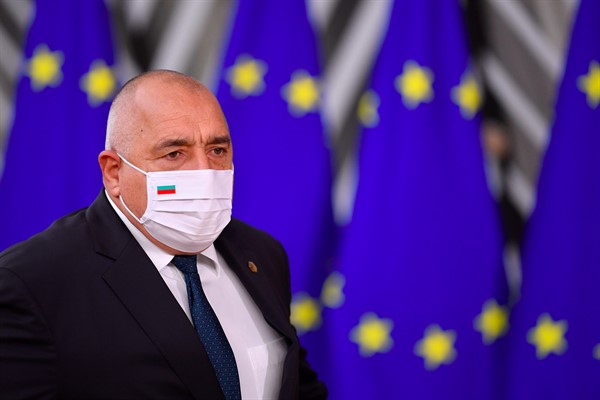As a European Union and NATO member that borders Turkey, hugs the Black Sea coast and maintains cordial relations with Russia, Bulgaria is a strategically significant country. Yet in recent years, it has rarely made international news—except for the occasional domestic clash over Russian influence and periodic mass protests over corruption and state capture.
The latest such uprising may have finally forced the departure from high-level politics of Boyko Borissov, who has served three nonconsecutive terms as prime minister since 2009 and was a mainstay of the Bulgarian political scene before that. His center-right populist Citizens for the European Development of Bulgaria party, known as GERB, won the most votes in elections in early April, as it has in every one of the nine parliamentary and European Parliament votes Bulgaria has held since 2007.
Yet the recent polls also produced one of the more fragmented parliaments in recent memory, as traditional parties lost ground to political newcomers. GERB took just over 26 percent of the vote, giving it only 75 of the 240 seats in the unicameral National Assembly—its worst parliamentary election performance in the party’s history. The runner-up was pop singer and TV host Slavi Trifonov’s newly established ITN party, which campaigned on an anti-corruption, anti-establishment platform, taking 17.7 percent of the vote. GERB’s rival, the once-powerful Bulgarian Socialist Party, or BSP, finished third with just 15 percent, losing almost half its seats.

